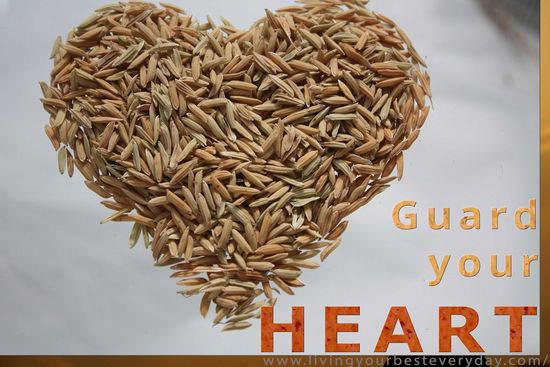February is the American Heart Month, so, let’s remember a few tips to keep your heart healthy for a long time. Some of them require to change your lifestyle, but most of them can be done one day at the time.

1. Eat Clean
The first step to having a healthy lifestyle is eating right. That means three balanced meals per day, each containing the proper servings of protein, carbohydrates, and phytonutrients. Also, don’t forget to:
- Pick whole foods and grains,
- Load up on fruits and vegetables and think them organical,
- Watch out for sugar, salt and artificial ingredients added,
- Think twice about the alcohol and coffee you drink,
- Be smart about the dairy and meat you have.
It’s very easy to get dehydrated, or even to spend a longer time in a dehydrated state. Just be sure to introduce higher water intake gradually so your body can get used to it. If you’ve been eating the wrong foods, not getting enough sleep, not drinking enough water, drinking alcohol, or smoking, your body would probably benefit greatly from a detox program. Enjoy products that are designed to fuel a healthy body, not just a good-looking one.
2. Get Moving and Keep Exercising
The American Heart Association recommends at least 150 minutes per week of moderate exercise or 75 minutes per week of vigorous exercise. Regular exercise has a favorable effect on your cardiovascular system. It is becoming increasingly obvious that we need to exercise less and move more. Exercising for 30 minutes then spend the majority of your non-exercise hours sitting is not going to work on a long run. It’s time to worry that neglecting to move around enough may shorten your lifespan, consider this: even regular exercise may not undo its effects. A daily walk can have positive effects on many aspects of your life, and aside from the fresh air and health benefits you might find that it’s therapeutic in itself, and can serve as a sort of mobile meditation. In the end is as simple as this: get out of your chair and start moving, because your life depends on this!
3. Obtain and Maintain a Healthy Body Mass Index (BMI)
A BMI either below or above the healthy-weight range can contribute to daily and long-term health problems by adding unnecessary stress on the heart. To understand what a "healthy" BMI is for you, please use this helpful calculator courtesy of the CDC. As people age, their body composition gradually shifts - the proportion of muscle decreases and the proportion of fat increases. This shift slows their metabolism, making it easier to gain weight. In addition, some people become less physically active as they get older, increasing the risk of weight gain.
4. Stress Less
According to the American Heart Association, high levels of stress are linked to high blood pressure and cholesterol levels, physical inactivity, low energy, and overeating.
5. Get a Health Check Up
If you’ve been putting off the annual check-up and it’s been awhile since you’ve been given a clean bill of health, you may want to resolve to going in for a doctor’s visit.
6. Get More Sleep
Sleep is one of the most important things you can do for your well-being, but many of us stay up into the wee hours, and wake up before we’re fully rested.
Remember:
Heart attack and stroke are life-and-death emergencies - every second counts.
Call 911 or your local emergency number if you or someone else have any of these symptoms:
- Shortness of breath;
- Chest pain;
- Loss of alertness (consciousness);
- Unusual sweating,
- Dizziness or lightheadedness.
Not all these signs occur in every heart attack or stroke. Sometimes they go away and return. If some occur, get help fast! Today heart attack and stroke victims can benefit from new medications and treatments unavailable to patients in years past. For example, clot-busting drugs can stop some heart attacks and strokes in progress, reducing disability and saving lives. But to be effective, these drugs must be given relatively quickly after heart attack or stroke symptoms first appear. So again, don't delay - get help right away!
Resources:
isafyi.com/AmericanHeartMonth
www.heart.org/HEARTORG/HealthyLiving/
www.cdc.gov/healthyweight/assessing/bmi/
www.heart.org/HEARTORG/Conditions/

If you already have an account, please LOGIN.
If not, you may consider creating on. It’s FREE!